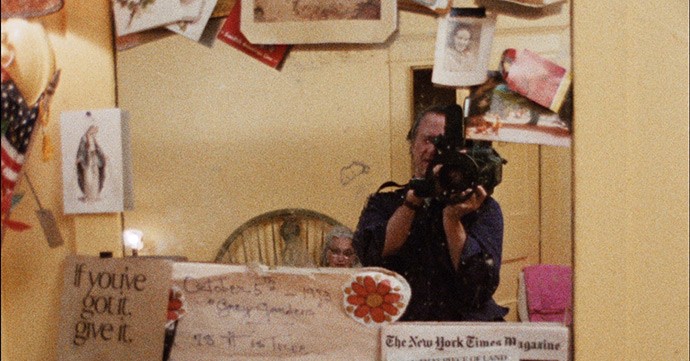
Cinema of the Performatively Sublime, Direct from the Source
Variable modes of watchful documentary cinema have been called many things over the years – actuality dramas by Allan King, observational cinema by Frederick Wiseman, cinéma vérité by Jean Rouch, and finally direct cinema by Robert Drew and his young, ambitious associates Richard Leacock, D.A. Pennebaker, Terence Macartney-Filgate, and Albert and David Maysles. Steadfast until his recent death at 88, Albert Maysles employed his firm belief in the direct cinema ethos, that documentary film should be encapsulations of reality, without interference by voiceover or reenactment, though never attempting to fool the audience into forgetting the prescience of the filmmakers themselves. It’s a matter of capturing the emotional truths in any given situation, whether they be when salesmen candidly speak to camera about their methods of bible peddling in the doc classic SALESMAN or documenting the making of Wes Anderson’s film “The Life Aquatic With Steve Zissou” in “This Is An Adventure”.
In a recent interview with Joshua Oppenheimer conducted at the Based on a True Story conference at the University of Missouri’s journalism school, the filmmaker behind the oddly performative, seering Indonesian expose THE ACT OF KILLING stated, “In so-called ‘fly-on-the-wall’ documentary, there’s a claim that the camera is a transparent window onto a pre-existing reality. But what really is happening is that the director and the film crew and the subjects are collaborating to simulate a reality in which they pretend the camera is not present. It’s a kind of dishonest story about how the film was made that performs a useful function — namely it helps us to suspend our disbelief and perceive that simulation as reality…No one forgets the presence of the camera, no matter how long it’s there. All documentaries are performance. They are performance precisely where people are playing themselves.”
No better statement could surmise what takes place in the films of Albert Maysles. Unobtrusive in their watch and wait technique, but always operating in their sweet-spot when the camera becomes a sounding board for his chatty, often eccentric subjects, Maysles’ films thrive on unrequited conversational performance and ethical murkiness. Just a week before Albert died at the age of 88 on March 5th, the same day that his masterpiece GREY GARDENS was to be re-released in theaters, Richard Brody wrote a piece in The New Yorker titled “All Documentaries Are Participatory Documentaries” in which he most acutely writes, “The subject of the film is performance, and the filmmakers are no mere observers of the action, they’re its catalysts. Filtering themselves out of the dialogue and off the screen (an editorial trick that might be fun to try at home) would do worse than to thin out the film—it would falsify it.”
When we’re first introduced to Big and Little Edie, the aunt and cousin of Jacqueline Kennedy Onassis, in a flurry of conversational chaos – “I’m gonna get naked in just a minute, so you better watch out.” – “That’s what I’m afraid of.” – “Now why? I haven’t got any warts on me.” – “But the movie….the movie!” – in the sun and shade of their dilapidated, though beloved, old money mansion off the shores of the Atlantic – “any place on Earth would be much worse” – we don’t know what to think. Is there something wrong with these people? Why are they dressed as they are (or aren’t)? Why are they continuously bickering? Are they always this eccentric? In their lovably ragged on screen appearances, are they being exploited for our entertainment? These are all valid questions, yet the filmmakers employed footage with intention, just as the Beales of Grey Gardens portrayed themselves.
As the camera rolls on, with Al Maysles behind the viewfinder, panning and zooming in on revealing facial expressions and hand gestures that hint at the underlying emotional gravity of the given situation, we begin to see that, although there are heartbreaking truths about ageing and the peculiar nature of family relations, their somewhat bizarre on screen personas are an amplified version of themselves. Their performances see them laying claim to strong wills and lives lost in the pursuit of failed artistic endeavors. The film is no less a document of the wacky happenings on screen as a self proclaimed public record of the Beales as a respectable family of wealth, moral fiber and artistic integrity. And the Maysles were smart enough to grasp onto that performed reality and integrate it into the very DNA of their cinema.
______
GREY GARDENS is Influence Film Club’s featured film for April. Each month Influence Film Club hand-picks one of our favorite docs as our club’s featured film to watch and discuss together. Throughout the month, starting with our newsletter and continuing on our website and social media we will extend the conversation by exploring the various issues touched on in the film, providing filmmaker interviews, suggesting ways to Influence, and discussing documentaries in general – because after all, We Love Docs.
Written by: Jordan M. Smith